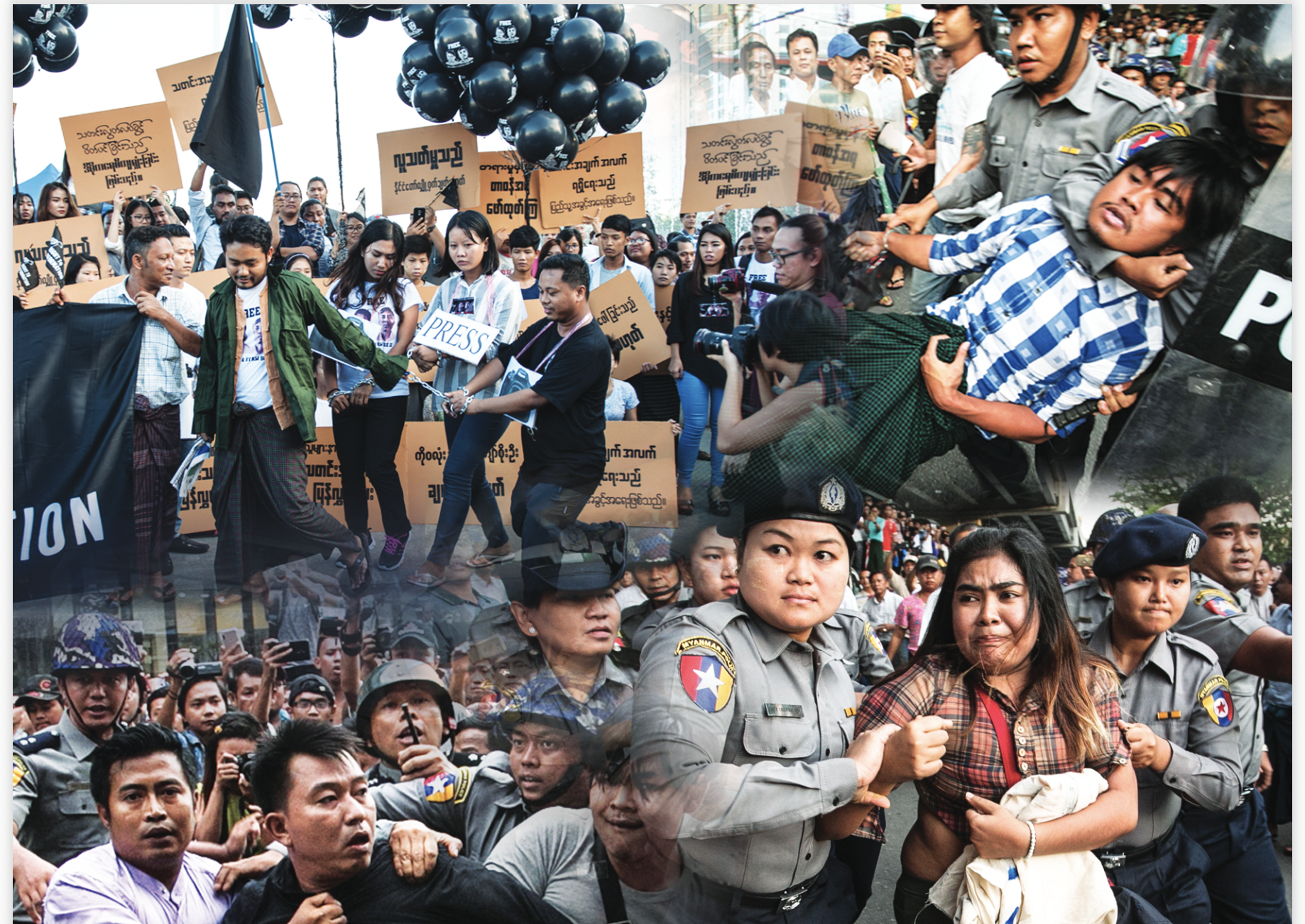Southeast Asia Press Alliance
The Southeast Asia Press Alliance (SEAPA) is Bangkok-based non-governmental regional organization with a specific mandate to promote and protect freedom of press and freedom of expression in Southeast Asia. Founded on November 9th 1998, SEAPA works expand across the region through collaboration with 13 member organizations as well as partners and individuals in media advocacy, media academe and human rights organizations in and outside Southeast Asia in order to nurture free and safe environment for responsible press and the media community of the region.
This report is a joint collaboration between ATHAN and SEAPA in which SEAPA provides a small group to ATHAN to conduct the monitoring and documentation of cases related to free expression and press freedom violations. This collaboration also included consultation on documentation methodology, categorization of cases and editorial advice.
Methodologies
ATHAN used a range of methodologies including categorical analysis on daily documentation of newspapers, journals, online news from credible sources, visiting court hearing, interviews at the court hearings and interviews on phone to compile this report.
Chapter 1
Preamble
Myanmar suffered from the lost years of freedom of expression after the military coup in 1998. The junta government installed its manipulative but well-crafted constitution in 2008. By means of 2008 constitution, Union Solidarity and Development Party (USDP), a political machinery founded to integrate retired military leaders into political system took part the power in the 2010 general elections, the first elections after since 1998, and won uncontested. The General Thein Sein was appointed as the president of Myanmar in 2010.
Freedom of Expression remained curtailed U Thein Sein government which promised to promote democracy. The government allowed the protest but regulated with a specific law, deregulated private media and Thangyat (a Burmese performance art that blends traditional folk verse performances accompanied by the beat of traditional drums or musical ensemble, and interspersed with song, dance and chant routines. It is performed during festive occasions, particularly during Thingyan). Nevertheless, there were some progress in this area compared to previous totalitarian governments.
People of Myanmar expected more freedom of expression after the landslide victory of the opposition party, National League of Democracy (NLD), in 2015 general elections. New civilian government initiated a few positive steps towards freedom of expression and freedom of assembly, which included freeing the students who had been arrested and prosecuted for marching from Mandalay to Yangon in protests against the National Education Law and pardoning the imprisoned politicians, activists, workers and farmers. NLD led government initiated some However, the euphoria died very soon. The government and parliament eventually resorted to restricting freedom of expression, intentionally and recklessly.
This report includes the mid-term analysis, findings and documentations of violation of freedom of expression within the two-and-half-year period from April 1st 2016 to September 30th 2018 under the NLD-led government led. ATHAN believes it activities in monitoring, documenting, identifying of situations of expression violation and critiquing about them are mandatory work of civil society organizations in order to protect freedom of expression a fundamental right of people in democratization process-from violation by state and non-state actors.
Chapter 2
Freedom of Expression
Part 1 – Violation of Freedom of Expression by Government
Under the civilian government’s two-and-half-year rule, following cases of freedom of expression violation are documented.
(a) Failure to Abolish Article 66(d) of Telecommunications Law
The abuse of Telecommunications Law, enacted in October 2013 has been infamous since 2015 when the competing political parties traded accusation against each other in election campaigns on Myanmar digital platform and social media. The Telecommunications Law became a threat to internet users who expressed their voice online.
The contagious and excessive use of Telecommunications Law was triggered by a charge filled by Tatmadaw against a citizen for his criticism of Tatmadaw in 2015 election campaigns. The law was then increasingly used to sue criticism and expression on social media. The law was eventually amended by parliament in August 2017 following a push by the civil society organizations, legal experts and activists. But the amendment was superficial and fell short of the CSOs’ recommendation for change. As far as ATHAN’s count is concerned, there have been 150 cases under the Telecommunications Law in which 11 cases were under previous government, 91 cases under the NLD-led government before the amendment and 48 cases after the amendment.
There were only three effective changes in the bill amending the Telecommunications Law (amendment bill) which was passed by Amyotha Hluttaw (Upper House of Parliament) on August 29th 2017. The amendment reduced the number of grounds to file complaint from seven to four, reduced the maximum prison term and banned third party plaintiff from filling complaints unless he or she is granted official legal power. The “defamation” is retained as one the grounds to file a complaint. The three other grounds are “extortion, disturbing or intimidation”.
Amendment of the Law
The provision and punishment for defamation is already stated in Section 500, Chapter 21 of Penal Code. According to the Evidence Act, enacted in 2015, an individual who convicts a criminal defamation with intention to damage reputation of a person or an organization on social media can be sued under defamatory provision of Penal Code. Including the defamation provision in Telecommunications Law is repetitious, resulting in conflicts of laws. Moreover, the procedural complaint process has serval steps under the Telecommunications Law. Even if the plaintiff and defendants agree to settle a cases, it takes several steps to withdraw a charge, resulting in negative impact for both plaintiff and defendant. ATHAN found it takes about one year in procedural process of building a case and at least six months to withdraw a charges.
Defamation

